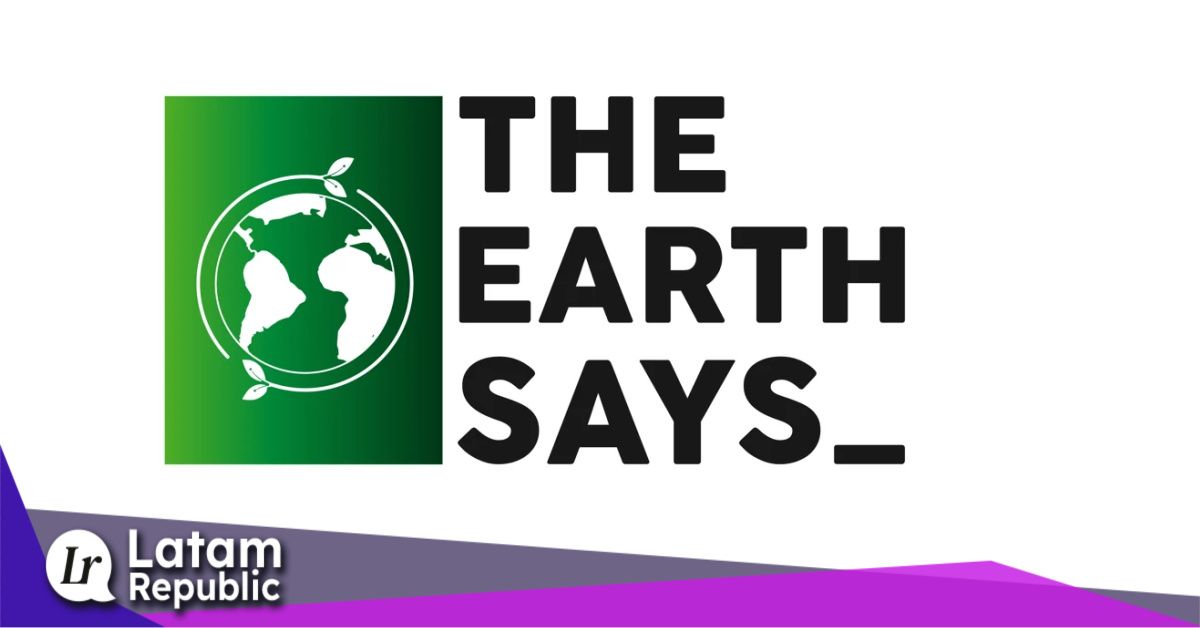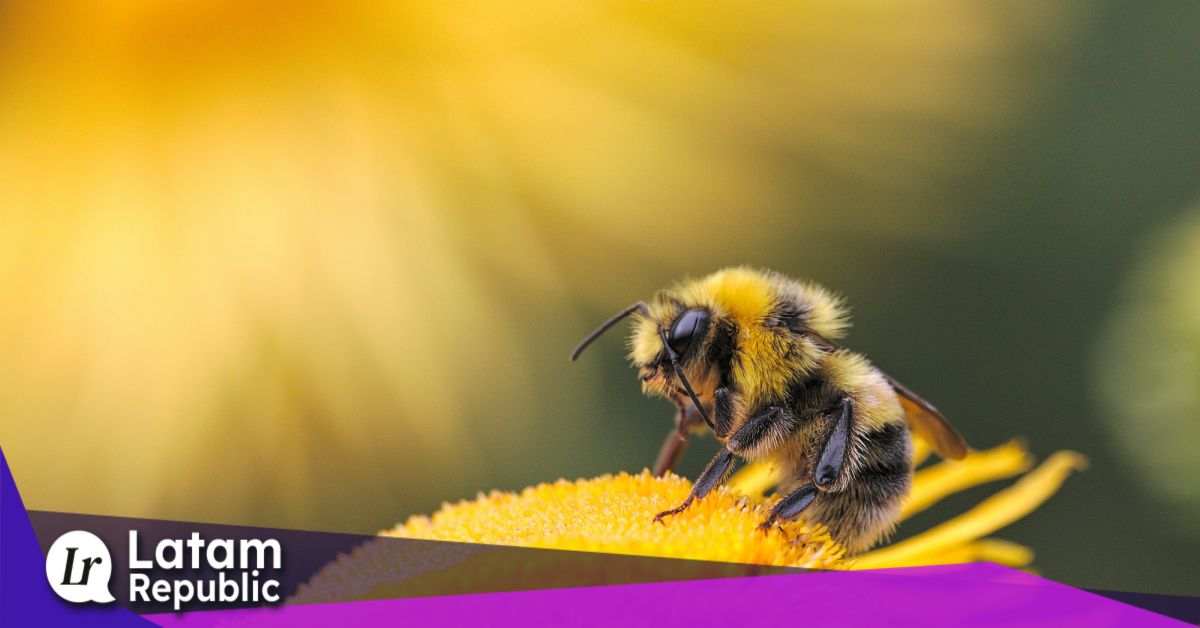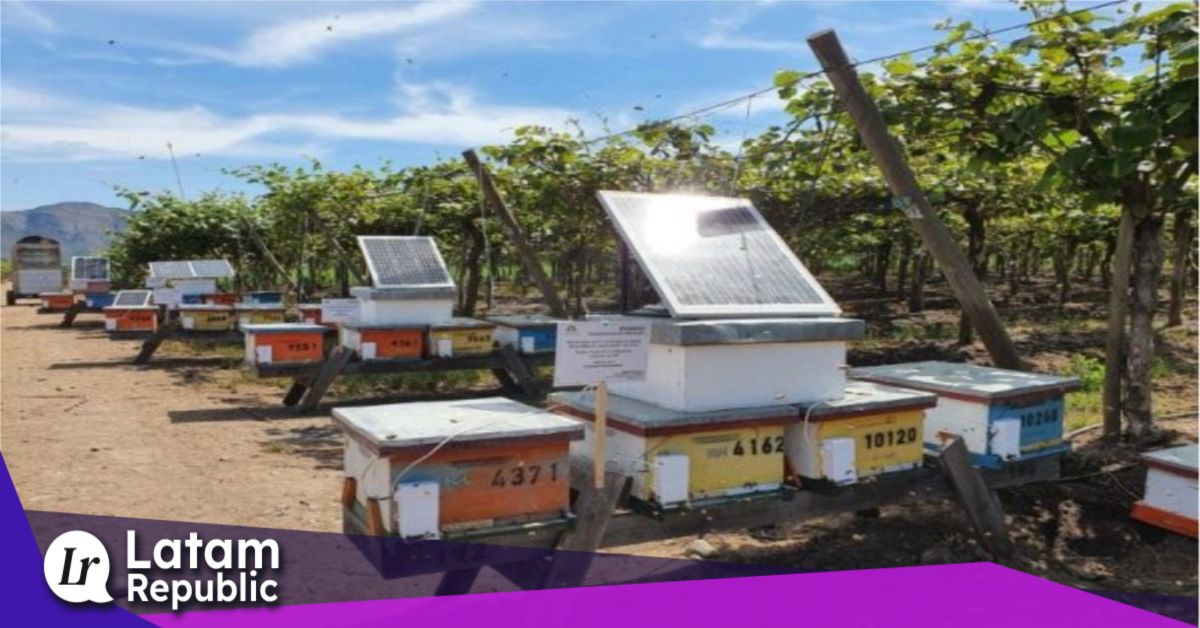The Earth Says: the Chilean startup that is revolutionizing the agricultural sector

Bees are an important link in agriculture, as they are responsible for pollinating crops. Unfortunately, in recent times, its population has suffered a worrying decline due to various factors, such as poor agricultural practices, climate change that alters flowering cycles, droughts, and the lack of control methods.
To face these challenges, Esteban Vásquez, a biologist and co-founder of the Chilean company The Earth Says, has devised an ingenious solution for hive management, with the aim of protecting bees.
Bee Test: Empowering Beekeepers with AI-driven Hive Diagnostics
Vásquez, in his research, specialized in the interaction between plants and pathogens, but later, he focused his attention on the role played by insects in pollination. During his studies, he developed an extract intended to improve the performance of hives, but when taking it to the field, he realized that more tools were needed to measure the capacity and productivity of each hive. This is how the idea of The Earth Says arose, in order to measure the efficiency of hives in the field.
Vásquez comments on what happened at the beginning: “Scalability became difficult due to the number of appliances required. For this reason we decided to reduce the hardware, which would entail collecting less information, but it allows us to analyze a greater number of hives”. To overcome this hurdle, they decided to reduce the hardware, which meant collecting less information, but allowing a larger number of hives to be analyzed.
This is how The Earth Says developed Bee Test, an innovative hive diagnostic system that uses sensors and artificial intelligence to deliver accurate and fast results. Thanks to Bee Test, beekeepers can now know the number of bees in each hive, reducing the risk of losses and allowing farmers to pay a fair price for hives purchased.

The Earth Says Gains Traction in Agricultural Industry
The role of artificial intelligence has been fundamental in this initiative. Vásquez explains that before there weren't many artificial intelligence models that could process thermal images, but they managed to develop a successful solution that is now essential to his business. With 95% accuracy, the system delivers reliable results in as little as 24 hours, and they are working to further reduce turnaround time.
The operation of the artificial intelligence of The Earth Says is amazing. You can identify hives with temperatures outside of established parameters, indicating higher or lower bee activity, respectively. The higher temperatures suggest that the bees are producing vibrations necessary for brood development. The company uses this information to segment the hives and determine the number of bees in each one, which becomes an invaluable resource for farmers.
The Earth Says initiative has had the fundamental support of government agencies in Chile, as well as the backing of the Startup Chile program, which encourages the development of new companies. In addition, they have received the support of angel investors and have been selected to participate in the prestigious startup acceleration program, 500 Startups. This has provided them not only with financing, but also with market connections and the opportunity to build relationships with new investment funds.

1,800 Hectares Monitored and 18,000 Hives Evaluated - The Success Story of The Earth Says
Today, The Earth Says is present in fields in Chile, operating in eight regions. Also in Mexico, where its systems are installed in the states of Sinaloa, Jalisco and Michoacán, and in Peru. To date, they have successfully monitored 1,800 hectares and evaluated more than 18,000 hives, proving the efficacy of their solution and generating positive results for farmers by enabling them to make more accurate data-driven decisions and improve the health of their crops.
The implementation of digitized hives and the use of artificial intelligence by The Earth Says represent an innovative solution to face the challenges that threaten the bee population and agricultural production.
